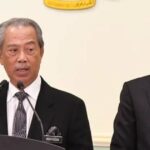The Impact of the 2009 Public Order Act on Public Assembly in Singapore
Recently, three women accused of organizing a peaceful walk for Palestine were acquitted in Singapore. This case sheds light on how the 2009 Public Order Act has influenced the country’s approach to public assembly. The Act has been criticized for transforming peaceful expression into a potentially punishable offense unless it is state-approved, thereby eroding longstanding legal protections.
Background of the 2009 Public Order Act
The 2009 Public Order Act was introduced in Singapore to enhance public safety and security by regulating assemblies and processions. Under this Act, organizers of public gatherings are required to obtain a police permit if the event is deemed to be a “cause-related” activity or if it is held in a public place. Failure to do so can result in fines or imprisonment.
The Case of the Three Women
In the case of the three women accused of organizing a walk for Palestine, they were acquitted due to insufficient evidence to prove that they had failed to obtain the necessary permit. The women claimed that the walk was a peaceful expression of solidarity with the Palestinian people and did not pose any threat to public safety or order.
Public Reaction and Legal Analysis
Many have raised concerns about the implications of the 2009 Public Order Act on the right to freedom of expression and assembly in Singapore. Critics argue that the Act gives authorities broad discretion to restrict public gatherings and suppress dissenting voices, potentially stifling civil liberties.
Legal experts have also highlighted how the Act has shifted the burden of proof onto organizers to demonstrate that their gatherings are lawful, rather than placing the onus on the authorities to justify restrictions. This has led to increased scrutiny and potential criminalization of peaceful activities that were previously considered lawful.
Government Response and Future Implications
The Singaporean government has defended the 2009 Public Order Act as necessary for maintaining public order and ensuring the safety of all citizens. They argue that the Act strikes a balance between protecting individual rights and upholding social harmony in a diverse society.
However, the acquittal of the three women in the Palestine walk case has sparked a debate about the Act’s impact on civil liberties and the need for a more nuanced approach to regulating public assembly. Moving forward, there may be calls for greater transparency and accountability in the enforcement of the Act to prevent potential abuses of power.
Conclusion
The acquittal of the three women accused of organizing a peaceful walk for Palestine has brought attention to the implications of the 2009 Public Order Act on public assembly in Singapore. While the Act aims to promote public safety and security, critics argue that it has curtailed fundamental rights to freedom of expression and assembly. As Singapore grapples with balancing security concerns and civil liberties, ongoing discussions and potential reforms may shape the future of public gatherings in the country.
Source
This article is written in response to original article.







